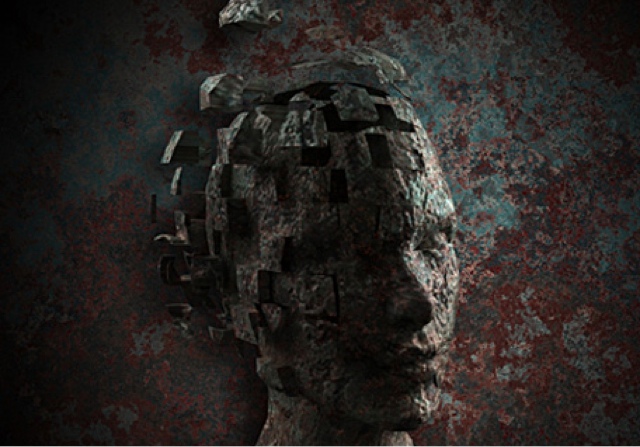Today was a mountain of aching brain in many ways. Began with missing my train....getting to rehearsal late. My scene partner wasn't there....waited about 45 mins and then he came downstairs...we had been waiting for each other in separate rooms! So clearly no rehearsing accomplished.
Scene Study was good: We read and discussed Act 5 of The Duchess of Malfi, and then Tom spent some time directing short scenes in the play with different people. What really came out of this was how important the text is, and how slowing down and making sure the actors mean the words they are saying, without any "extras" of acting on top of it can really make the play come alive. It is remarkable just how little acting we need to understand the play. We then got to pitch our proposals for final Scene Study presentations on Duchess; my group's pitch was successful...hooray! More on this process later...tomorrow we meet to try to put together the script.
Then on to Theorizing. We spent the class looking at media in performance, and what theatre means in a mediated age. This included watching clips of performances from various companies who work with media in their practice...specifically several from the Wooster Group. I found these rather difficult to deal with; Wooster work in relation/response/interaction with classic or canonical texts, looking at the effect that media has on them. They use a lot of microphoned voices, really showing the mechanics of producing sound, and using the microphone's power to silence other actors who don't have the microphone. At the same time, they use various images, often many at once....simulating channel surfing as we do it on TV. There is a lot of ambient sound, screeches, enhanced voices from the microphones, videos, etc, simultaneously...which combine (in theory) to really make the audience aware of the work they are doing as audience members.
Now in theory, I agree with this idea...alienating the audience, really engaging them with the mechanics and not letting them be lulled in by emotion or character. In the video clips we watched, however, I wasn't able to get this. The onslaught, primarily the sound, made it impossible for me as a spectator to make a choice on where to focus; in fact, I tried to jump around, but soon just disengaged and stopped watching/listening. We debated in groups the means with which Wooster try to achieve this alienation, discussing the techniques above. Each on their own, or even in reasonable combination, I find these all to be exceptionally useful. I must say however that the combination, layering them all at once, just made me angry as a spectator. In all honestly, if the full show were like that, I would likely leave. Someone put forward that perhaps the point is just to agitate or provoke the audience. Maybe it is...but provoke them to what? for what? It seems to me this is likely just to end in resentment.
I think another area of frustration is that most of these, as I stated above, were attempting to interact with a canonical text...but the words of the text, even the ideas, felt lost in the pandemonium. What is the point of "interacting" with a text if the text is lost in the muddle? Why not just look at an abstract idea instead?
Now all this said, it is based on a few short video clips on the internet, which likely have the inherent sound engineering problems of videotaped theatre....and didn't show the full production. I am now rather curious to see a production by Wooster, just to see if in its entirety, live, it hangs together.
Scene Study was good: We read and discussed Act 5 of The Duchess of Malfi, and then Tom spent some time directing short scenes in the play with different people. What really came out of this was how important the text is, and how slowing down and making sure the actors mean the words they are saying, without any "extras" of acting on top of it can really make the play come alive. It is remarkable just how little acting we need to understand the play. We then got to pitch our proposals for final Scene Study presentations on Duchess; my group's pitch was successful...hooray! More on this process later...tomorrow we meet to try to put together the script.
Then on to Theorizing. We spent the class looking at media in performance, and what theatre means in a mediated age. This included watching clips of performances from various companies who work with media in their practice...specifically several from the Wooster Group. I found these rather difficult to deal with; Wooster work in relation/response/interaction with classic or canonical texts, looking at the effect that media has on them. They use a lot of microphoned voices, really showing the mechanics of producing sound, and using the microphone's power to silence other actors who don't have the microphone. At the same time, they use various images, often many at once....simulating channel surfing as we do it on TV. There is a lot of ambient sound, screeches, enhanced voices from the microphones, videos, etc, simultaneously...which combine (in theory) to really make the audience aware of the work they are doing as audience members.
Now in theory, I agree with this idea...alienating the audience, really engaging them with the mechanics and not letting them be lulled in by emotion or character. In the video clips we watched, however, I wasn't able to get this. The onslaught, primarily the sound, made it impossible for me as a spectator to make a choice on where to focus; in fact, I tried to jump around, but soon just disengaged and stopped watching/listening. We debated in groups the means with which Wooster try to achieve this alienation, discussing the techniques above. Each on their own, or even in reasonable combination, I find these all to be exceptionally useful. I must say however that the combination, layering them all at once, just made me angry as a spectator. In all honestly, if the full show were like that, I would likely leave. Someone put forward that perhaps the point is just to agitate or provoke the audience. Maybe it is...but provoke them to what? for what? It seems to me this is likely just to end in resentment.
I think another area of frustration is that most of these, as I stated above, were attempting to interact with a canonical text...but the words of the text, even the ideas, felt lost in the pandemonium. What is the point of "interacting" with a text if the text is lost in the muddle? Why not just look at an abstract idea instead?
Now all this said, it is based on a few short video clips on the internet, which likely have the inherent sound engineering problems of videotaped theatre....and didn't show the full production. I am now rather curious to see a production by Wooster, just to see if in its entirety, live, it hangs together.



